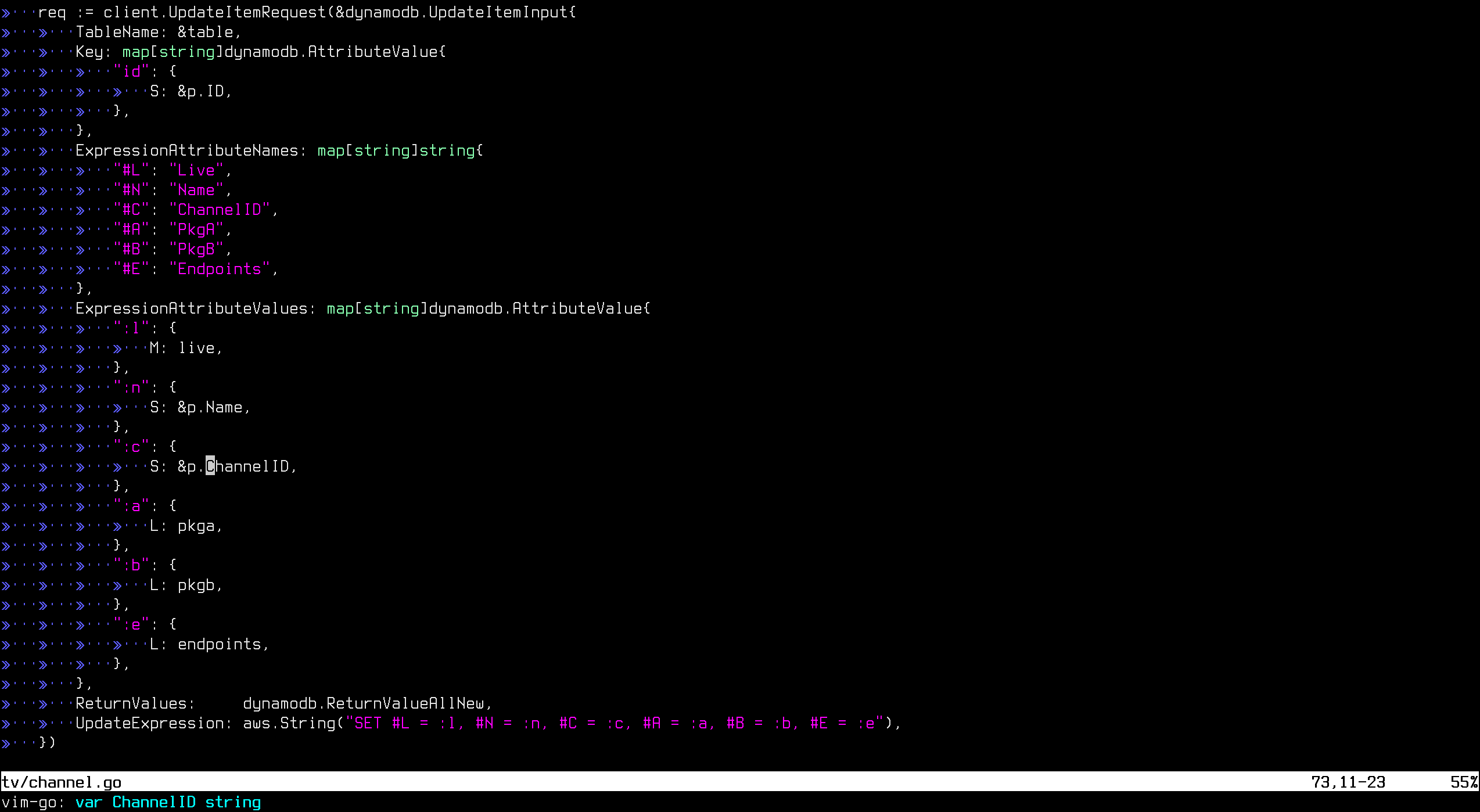aws-sdk-go-v2 is the v2 AWS SDK for the Go programming language.
The v2 SDK requires a minimum version of Go 1.20.
Check out the release notes for information about the latest bug fixes, updates, and features added to the SDK.
Jump To:
For information about maintenance and support for SDK major versions and their underlying dependencies, see the following in the AWS SDKs and Tools Shared Configuration and Credentials Reference Guide:
The v2 SDK follows the upstream release policy with an additional six months of support for the most recently deprecated language version.
AWS reserves the right to drop support for unsupported Go versions earlier to address critical security issues.
To get started working with the SDK setup your project for Go modules, and retrieve the SDK dependencies with go get.
This example shows how you can use the v2 SDK to make an API request using the SDK's Amazon DynamoDB client.
$ mkdir ~/helloaws
$ cd ~/helloaws
$ go mod init helloaws$ go get github.com/aws/aws-sdk-go-v2/aws
$ go get github.com/aws/aws-sdk-go-v2/config
$ go get github.com/aws/aws-sdk-go-v2/service/dynamodbIn your preferred editor add the following content to main.go
package main
import (
"context"
"fmt"
"log"
"github.com/aws/aws-sdk-go-v2/aws"
"github.com/aws/aws-sdk-go-v2/config"
"github.com/aws/aws-sdk-go-v2/service/dynamodb"
)
func main() {
// Using the SDK's default configuration, loading additional config
// and credentials values from the environment variables, shared
// credentials, and shared configuration files
cfg, err := config.LoadDefaultConfig(context.TODO(), config.WithRegion("us-west-2"))
if err != nil {
log.Fatalf("unable to load SDK config, %v", err)
}
// Using the Config value, create the DynamoDB client
svc := dynamodb.NewFromConfig(cfg)
// Build the request with its input parameters
resp, err := svc.ListTables(context.TODO(), &dynamodb.ListTablesInput{
Limit: aws.Int32(5),
})
if err != nil {
log.Fatalf("failed to list tables, %v", err)
}
fmt.Println("Tables:")
for _, tableName := range resp.TableNames {
fmt.Println(tableName)
}
}$ go run .
Tables:
tableOne
tableTwoPlease use these community resources for getting help. We use the GitHub issues for tracking bugs and feature requests.
- Ask us a question or open a discussion.
- If you think you may have found a bug, please open an issue.
- Open a support ticket with AWS Support.
This SDK implements AWS service APIs. For general issues regarding the AWS services and their limitations, you may also take a look at the Amazon Web Services Discussion Forums.
If you encounter a bug with the AWS SDK for Go we would like to hear about it. Search the existing issues and see if others are also experiencing the same issue before opening a new issue. Please include the version of AWS SDK for Go, Go language, and OS you’re using. Please also include reproduction case when appropriate.
The GitHub issues are intended for bug reports and feature requests. For help and questions with using AWS SDK for Go please make use of the resources listed in the Getting Help section. Keeping the list of open issues lean will help us respond in a timely manner.
The v2 SDK will use GitHub Issues to track feature requests and issues with the SDK. In addition, we'll use GitHub Projects to track large tasks spanning multiple pull requests, such as refactoring the SDK's internal request lifecycle. You can provide feedback to us in several ways.
GitHub issues. To provide feedback or report bugs, file GitHub Issues on the SDK. This is the preferred mechanism to give feedback so that other users can engage in the conversation, +1 issues, etc. Issues you open will be evaluated, and included in our roadmap for the GA launch.
Contributing. You can open pull requests for fixes or additions to the AWS SDK for Go 2.0. All pull requests must be submitted under the Apache 2.0 license and will be reviewed by an SDK team member before being merged in. Accompanying unit tests, where possible, are appreciated.
SDK Developer Guide - Use this document to learn how to get started and use the AWS SDK for Go V2.
SDK Migration Guide - Use this document to learn how to migrate to V2 from the AWS SDK for Go.
SDK API Reference Documentation - Use this document to look up all API operation input and output parameters for AWS services supported by the SDK. The API reference also includes documentation of the SDK, and examples how to using the SDK, service client API operations, and API operation require parameters.
Service Documentation - Use this documentation to learn how to interface with AWS services. These guides are great for getting started with a service, or when looking for more information about a service. While this document is not required for coding, services may supply helpful samples to look out for.
Forum - Ask questions, get help, and give feedback
Issues - Report issues, submit pull requests, and get involved (see Apache 2.0 License)






